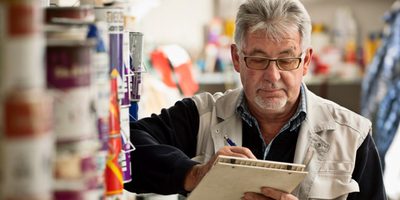
New stroke research to help young stroke patients
Marina was 36 and preparing for the birth of her first child when she had a stroke, which paralysed her left side, due to a burst blood vessel in the right hemisphere of her brain.
Unsure of her future after the stroke, Marina knew she would need to take a day-by-day approach to get back on track. From early on, she worked constantly on her exercises. In the early months she would walk a great deal. With a new baby she knew she needed to do as much as she could to improve her health and look after him. She took every opportunity to continue doing everyday activities.
Eighteen months later, Marina is still on the road to recovery, but says she is determined to return to full health and attributes much of her improvement to maintaining a positive frame of mind, continually practicing her physiotherapy exercises and never giving up.
Marina participated in new stroke research designed for younger people, and their ability to return to work and maintain financial independence one year after stroke.
She says she is particularly thankful for the opportunity she has had to reassess her work arrangements for when she returns to work, and counts this as one of the positive impacts of the stroke. Not only will she make sure that her work fits in with her family, she says it must make her happy - the stroke has acted as a reminder of what is truly important in life.
When Marina completed her six-month follow-up interview as part of the study, she realised just how far she has come since those early days. She can move, feel and do most things with only a loss of her very fine motor skills. Her determination in retraining her brain, and resolve to focus on success stories of stroke patients recovery has helped her create her own success story.
She is proud to have participated in a study which will contribute to other young patients recovery and well-being. "Working with The George Institute staff was fantastic. They were understanding and very positive. It’s great to contribute to such important research".


